"Even using harsh speech is enough to cause suffering."
Pig’s Mouth
Peta Vatthu 1.2 | Sūkaramukha Sutta
Nārada Bhante:
Your body is the color of gold and shines in all directions. But your mouth is like a pig’s. What have you done in your previous life?
Ghost:
I did nothing wrong with my body, but I said bad things using my mouth. That is why my body is beautiful but my mouth is like a pig’s, Nārada Bhante.
So Bhante, Now that you can see my body, I strongly encourage you not to do bad things using your mouth, or you will also have the mouth of a pig and suffer like me.
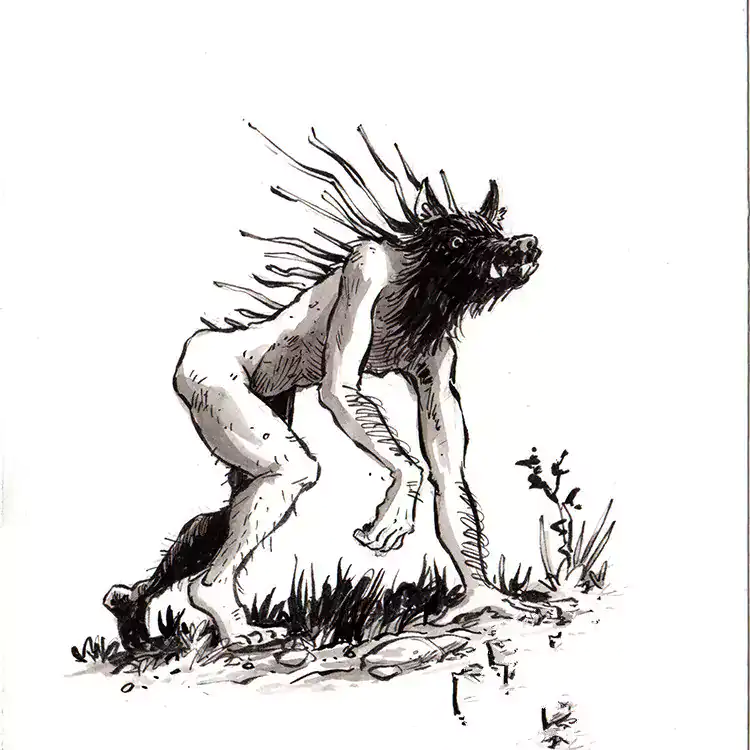
-
Save
"A ghost explains the danger of using harsh speech."
Stinky Mouth
Peta Vatthu 1.3 | Pūtimukha Sutta
Nārada Bhante:
Your body is as beautiful as an angel and you are floating in the sky. But your mouth is being eaten by worms and is very smelly. What have you done in your previous life?
Ghost:
I was an evil monk and insulted others using bad words. I pretended to be a good monk. I did not control what I said to others. However, I did not do any evil actions with my body. Because of this, my body is beautiful but my mouth is full of worms.
You have seen this with your own eyes, Nārada Bhante. The wise and compassionate Buddhas have taught about wholesome things. I say the same to you. Never tell lies or break friendships with divisive speech. Then you will be reborn in heaven and enjoy every happiness you desire.
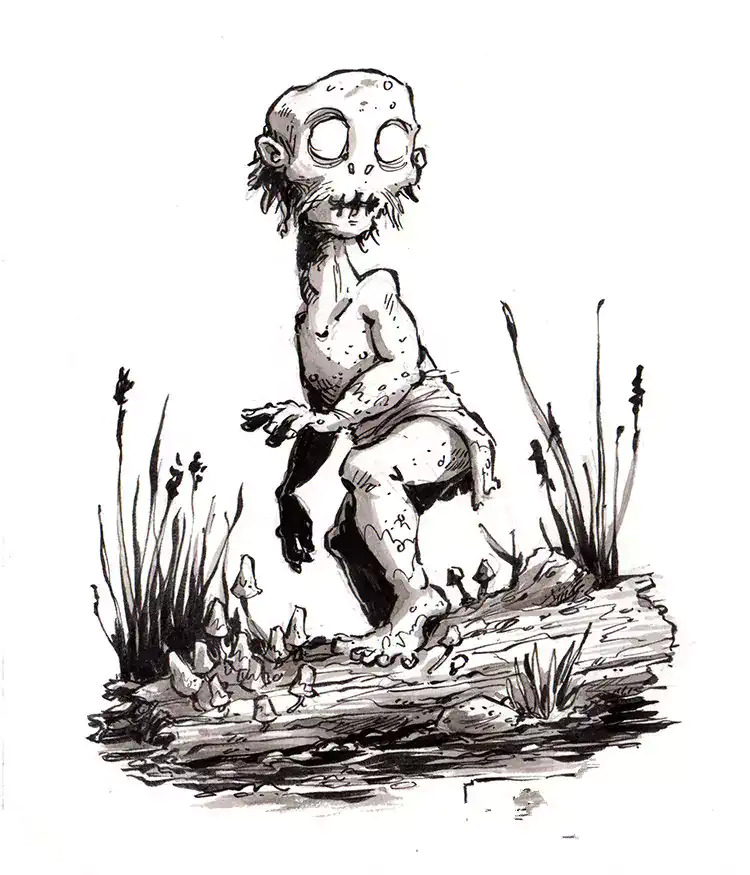
-
Save
"How do we help our departed relatives?"
Advice to a Daughter
Peta Vatthu 1.4 | Piṭṭhadhītalika Sutta
Consoling a crying daughter, the Supreme Buddha gives advice after an alms giving.
Unselfish people give gifts to virtuous people with the intention of sharing merits with departed relatives in the ghost world, or with deities who live in their own houses.
They will receive great benefit, those who share their merits with the deities Kuvera, Dhataraṭṭha, Virūpakkha and Virūḷhaka—the powerful Four Great Kings who guard this world.
Weeping, sorrow, and crying will not benefit departed relatives in any way. They will remain in the ghost world no matter how much we cry.
The merits shared from the donations given to the noble disciples of the Buddha will be received by the departed relatives right away. They will enjoy happiness for a long time.
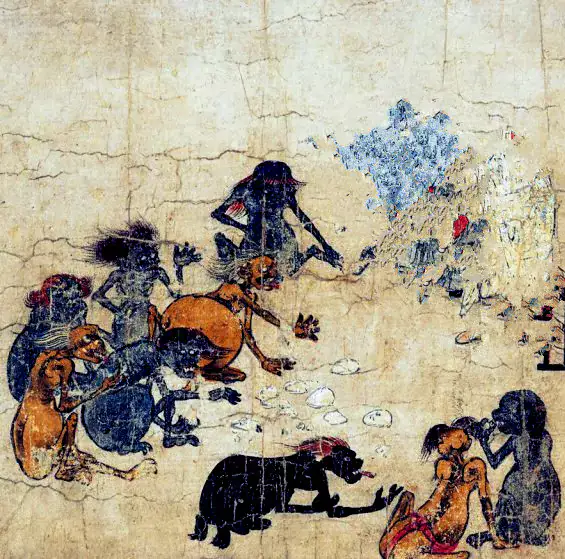
-
Save
"A ghost explains her suffering due to lying and evil deeds from a previous life."
Eater of Five Sons
Peta Vatthu 1.6 | Pañcaputtakhādaka Sutta
Upon seeing a ghost, a monk asks,
Monk:
You are naked and very ugly. Your body is very smelly. You are surrounded by flies. You, standing there, who are you?
Ghost:
I am a ghost, sir. I am suffering in the world of Yama. I have done an evil deed as a human and have been reborn in the world of ghosts. Every morning, I give birth to five sons and in the evening another five are born. I eat them all that night. But I will still be hungry. My heart is burning with hunger so much that it is smoking. I get no water to drink. See the disaster that has happened to me.
Monk:
Now what evil deed have you done by body, speech, or mind? What have you done so that you have to eat your own sons?
Ghost:
My husband’s other wife was about to give birth. I was extremely jealous of her. With that evil mind, I gave her some medicine that would kill the unborn baby. The two month old embryo flowed out just like blood. The baby’s grandmother became very angry with me and called her relatives. She frightened me and made me swear an oath. I told a terrible lie by saying, “If I was the one who killed the baby, I will eat my own sons!”
As a result of that evil deed and the lie I told, I have to eat my sons and be covered by their blood.
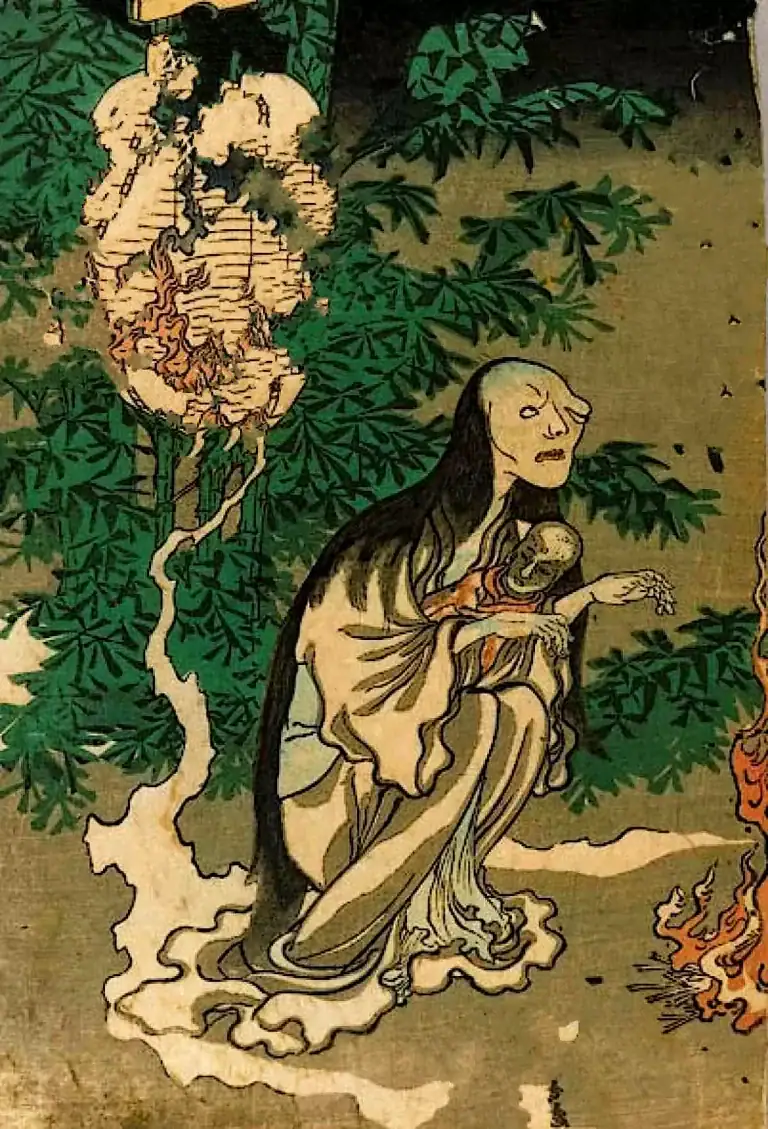
-
Save
"Jealousy and hatred can only lead to suffering."
Eater of Seven Sons
Peta Vatthu 1.7 | Sattaputtakhādaka Sutta
Upon seeing a ghost, a monk asks,
Monk:
You are naked and very ugly. Your body is very smelly. You are surrounded by flies. You, standing there, who are you?
Ghost:
I am a ghost, sir. I am suffering in the world of Yama. I have done an evil deed as a human and have been reborn in the world of ghosts. Every morning, I give birth to seven sons and in the evening another seven are born. I eat them all that night. But I will still be hungry. My heart is burning with hunger so much that it is smoking. My mind is never peaceful. I am being tortured and in pain as if burned by fire.
Monk:
Now what evil deed have you done by body, speech, or mind? What have you done so that you have to eat your own sons?
Ghost:
I had two sons who had become teenagers. My sons were strong and I used their strength to disrespect my husband.
My husband became very angry and married another wife. When she became pregnant, I got very jealous of her. With that evil mind, I gave her some medicine that would kill the unborn baby. The three month old embryo flowed out just like blood. The baby’s grandmother became very angry with me and called her relatives. She frightened me and made me swear an oath. I told a terrible lie by saying, “If I was the one who killed the baby, I will eat my own sons!”
As a result of that evil deed and the lie I told, I have to eat my sons and be covered by their blood.
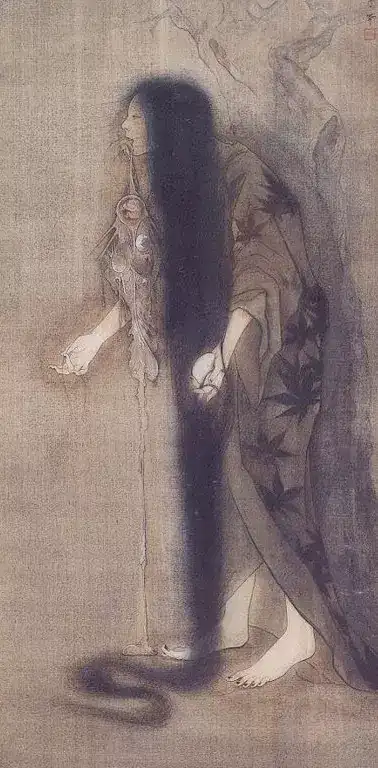
-
Save
"What happens when you insult those who give?"
Master Weaver
Peta Vatthu 1.9 | Mahāpesakāra Sutta
A monk sees a ghost and discusses his experience with others.
Monk:
She eats excrement, urine, blood, and pus. Why does she do this? What has she done for her to have to always feed on blood and pus? New clothes which are very clean, soft, and beautiful turn to hard metal plates when they are given to her. What bad karma has this woman done?
Man:
She was my wife. She was very greedy, mean, and never gave to anyone. When I offered gifts to monks, she would insult me. She cursed me saying, “As you offer food, let this food return to you in the form of excrement, urine, blood, and pus! As you offer clothes, let these clothes return to you in the form of metal plates!” Since she had this evil mind, she now suffers in the ghost world eating filth for a long time.
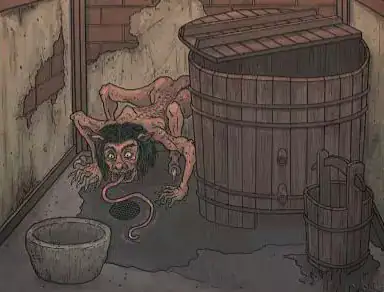
-
Save
"A ghost explains the value of giving and sharing merit."
Dressed in Hair
Peta Vatthu 1.10 | Khallāṭiya Sutta
A group of merchants sees a ghost and asks,
Merchant:
Who are you, the one staying in that mansion? Why don’t you come out? My dear, we would like to see you and your psychic powers.
Ghost:
I am naked and embarrassed to come outside. I wear my hair as my only clothes. I have collected only a small amount of merit in my previous life.
Merchant:
Alright my dear, I will give you my cloak. Put it on and come outside. We would like to see you.
Ghost:
I cannot receive what is given by your hand directly to mine. But within your group, there is a lay follower of the Supreme Buddha who is very faithful to him and his teachings. Offer him the cloak and share the merits with me, then I will be happy and have all the comforts I desire.
Those merchants washed the lay follower and offered him the cloak. They then shared the merit with the ghost.
The ghost received the result instantaneously in the form of food, clothing, and drink. This is the result of the sharing of merit. Then she became pure, wearing the cleanest and finest clothes. Smiling, she came out from the mansion saying, “This is the fruit of your gift.”
Merchant:
Your mansion is very beautiful and shines very brightly. Oh devata, tell us what good karma is this the result of.
Ghost:
When I was living in the human world, a monk was going on his alms round. I had a very confident mind towards him and offered an oil cake. As a result of that good karma, I have lived happily in this mansion for a long time. But that result will come to an end soon. In four months, I will die and fall to the very scary and terrible hell. That hell has four corners and four doors. It is divided into sections, surrounded by an iron wall and covered by an iron roof. Its iron floor is glowing with heat. Flames cover the area for hundreds of miles. I will experience pain there for a very long time as the result of my evil deeds. Because of this I am very sad.
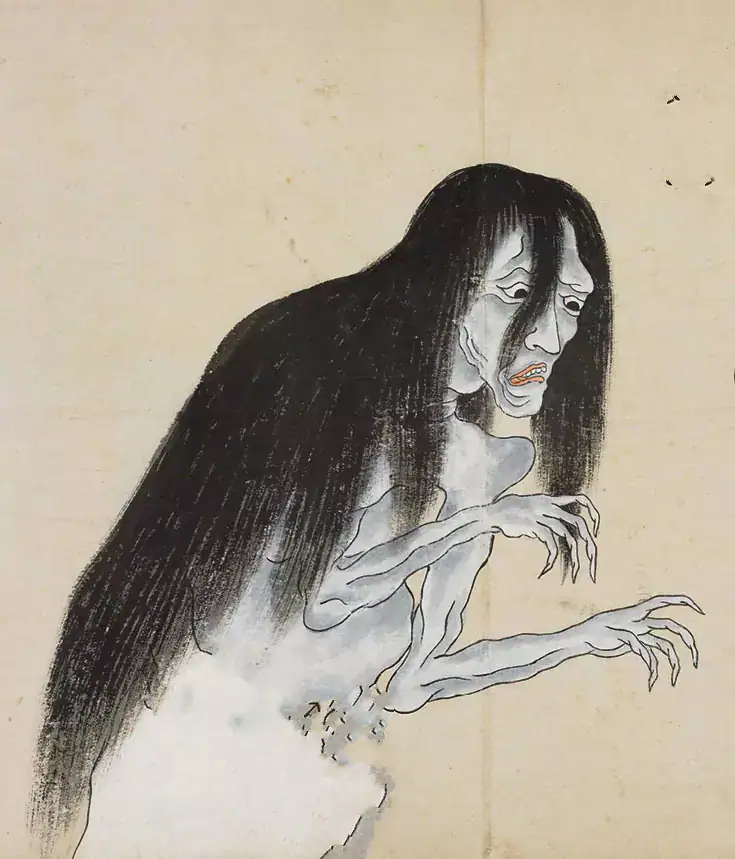
-
Save
"Why is important to give when we have the opportunity?"
The Elephant
Peta Vatthu 1.11 | Nāga Sutta
A monk sees a group of gods and another group of ghosts and asks these questions:
Monk:
The deva leading the gods is riding a white elephant. There is a deva in the middle of the line sitting on a chariot. At the end of the line, a female deva travels on a golden stage which shines brightly in ten directions. But you ghosts are carrying hammers in your hands with sad faces and broken bodies. You also drink each other’s blood. What bad karma have you done in the human world?
Ghost:
The one in front, riding a white elephant was our eldest son. Having given alms to monks, he is now happy and delighted.
The one in the middle, sitting on a chariot was our second son. He was unselfish and very generous. He now shines brilliantly.
The female deva with soft eyes like a deer’s who is at the end, travelling on a golden stage is our youngest daughter. She was wise and donated half of her wealth. She is now happy and delighted.
In the human world, our children gave alms to monks with very pleasant minds. But we were very selfish and insulted monks. Our children are now very happy because they practiced generosity, but we are suffering like withered bamboo reeds.
Monk:
You are suffering today because you missed the opportunity to do good deeds when you had plenty of food and wealth. Now in the ghost world, what kind of food do you eat and what kind of bed do you sleep on? How do you live here?
Ghost:
We hate each other. When we fight each other using hammers, we drink the blood and pus of our victims. But we are still hungry.
Some rich people neither use their wealth nor do meritorious deeds. These greedy people are reborn in the ghost world and suffer.
These ghosts experience the results of their bad karma, suffering from hunger and thirst; they are burning from suffering.
Wealth and property are temporary things. Even this life is very short. Wise people should understand this impermanent nature of life and should seek a way to protect themselves.
There are wise people who understand the Dhamma well. Having heard the teachings of Arahants, they do not forget to give alms.
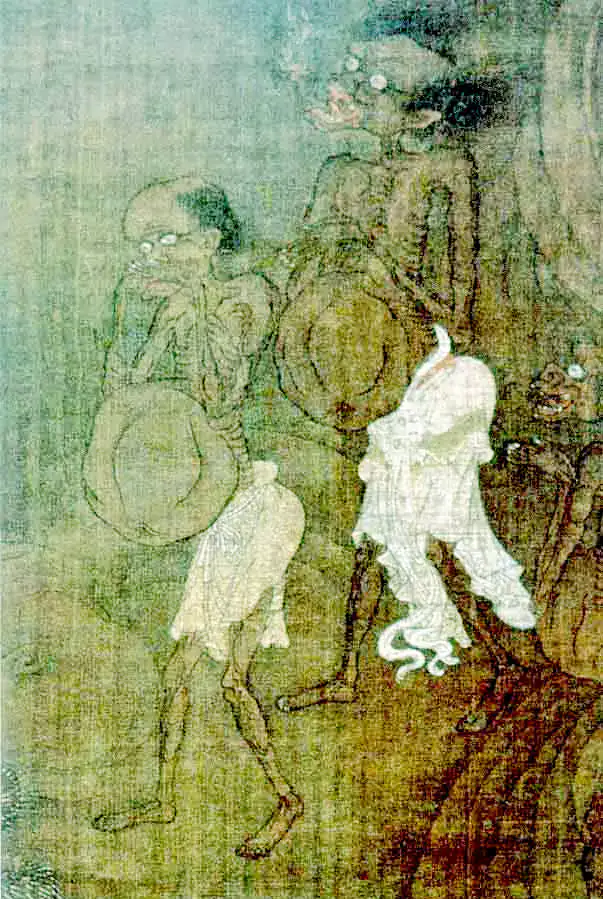
-
Save
